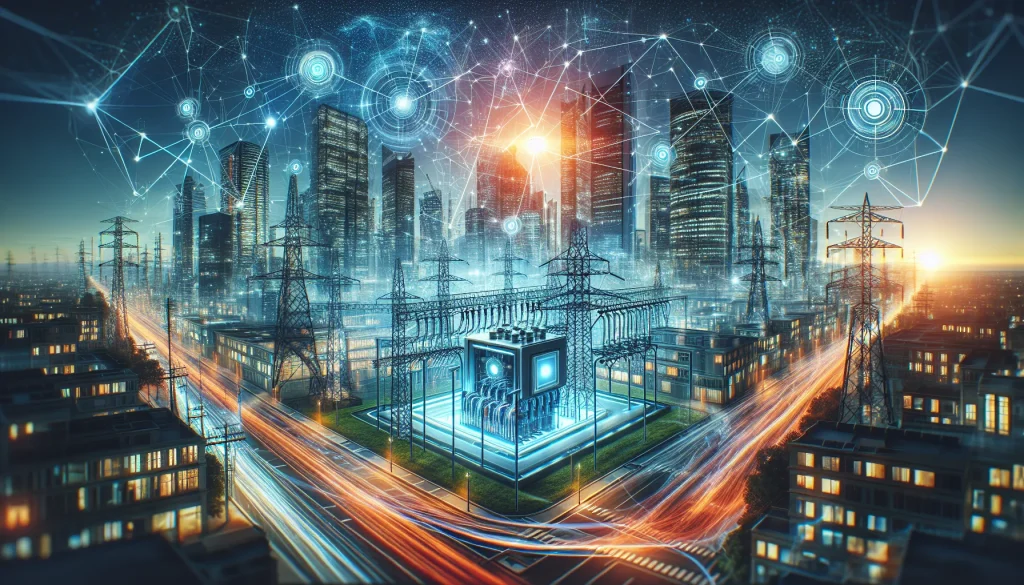In the quest for a greener future, smart grids have been pivotal in reshaping energy consumption. From CEOs to hardware engineers, we’ve gathered five expert perspectives on how these advanced systems are fostering sustainability. Explore insights ranging from implementing demand-response programs to facilitating renewable energy integration, as we delve into the specific contributions of smart grids.
- Implement Demand-Response Programs
- Seamlessly Integrate Renewable Energy
- Balance Energy Frequency
- Enhance Energy Efficiency
- Facilitate Renewable Energy Integration
Implement Demand-Response Programs
One specific way smart grids have contributed to sustainable energy consumption is through demand-response programs. These programs utilize advanced communication and control technologies integrated into smart grids to adjust electricity consumption in response to supply conditions, grid constraints, or price signals.
As someone running a company in the solar energy sector, I recognize that smart grids enable better integration of renewable energy sources like solar power by optimizing energy usage patterns to match periods of peak solar generation. By incentivizing consumers to shift their energy usage to times when renewable energy generation is high, smart grids help reduce the need for fossil fuel-based backup generation, leading to a more sustainable and efficient energy system overall.
 Robert Roth
Robert Roth
CEO, Quote For Solar Group, Inc.
Seamlessly Integrate Renewable Energy
Smart grids have revolutionized sustainable energy consumption through their ability to integrate renewable energy sources seamlessly. By managing the variability and intermittency of renewables like solar and wind, smart grids ensure a stable energy supply. This integration reduces reliance on fossil fuels, cutting down carbon emissions and promoting a greener environment. It’s a significant step forward in making energy consumption more sustainable and is a focus area in our work at MOKO Technology.
 Will Li
Will Li
Hardware Engineer, MOKO Technology
Balance Energy Frequency
Smart grids play a crucial role in balancing energy supply and demand, which is one of their most significant benefits. This balancing act is especially important due to the difficulties associated with storing electricity and the serious issues that can arise if demand isn’t met.
Simply put, whenever there’s a demand for electricity, energy providers have to quickly send the right amount of energy into the grid. If there’s not enough supply, the grid’s frequency decreases. If this frequency drops too low, an automatic process starts to reduce the load and prevent power outages. If the frequency continues falling, power plants may shut down one after another, which can lead to a total grid failure or a power blackout.
The delicate balance of supply and demand is key to keeping the entire electricity system running smoothly. Smart grids, with their ability to monitor for sudden increases in power usage, blackouts, technical energy losses, waste, and fraud, are ideally equipped for this task.
 Billy Litmer
Billy Litmer
Founder, Honest Eco
Enhance Energy Efficiency
Smart grids have made a notable impact on sustainable energy consumption by improving energy efficiency. Through advanced monitoring and control technologies, these grids identify and reduce energy losses in the distribution network. This optimization means less electricity is wasted, and more can be used effectively, contributing to a significant reduction in overall energy consumption. As the CEO of Yijin Hardware, recognizing such advancements underscores the importance of integrating smart technologies for a more sustainable future.
 Gavin Yi
Gavin Yi
CEO, Yijin Hardware
Facilitate Renewable Energy Integration
Drawing from the extensive experience gained through managing G.H. Clark Contractors, Inc., a profound way smart grids have bolstered sustainable energy consumption is through the facilitation of renewable energy integration. Smart grids possess the sophisticated capability to seamlessly incorporate energy from renewable sources into the power supply, overcoming traditional barriers to entry for renewables.
This adaptability not only diversifies the energy mix but also stabilizes the grid, making it more resilient to fluctuations and disruptions. As a business leader who champions community and environmental stewardship, I recognize the significance of smart grids in paving the way for a more sustainable and reliable energy future.
 Gil Clark Jr.
Gil Clark Jr.
CEO, GH Clark








